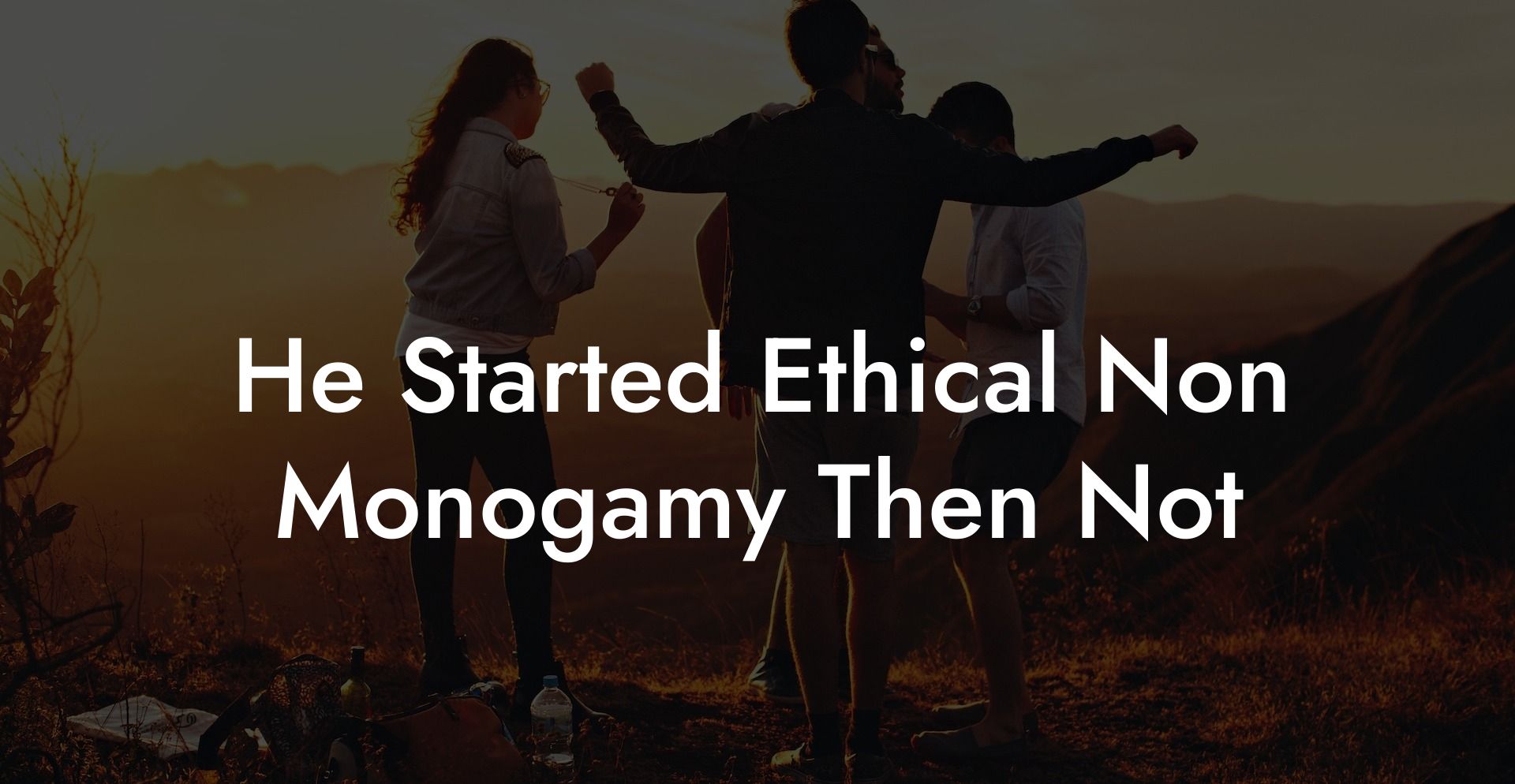He started Ethical Non-Monogamy, then everything took an unexpected turn. Read on to find out about the challenges faced and valuable lessons learned while exploring non-traditional relationship styles.
He Started Ethical Non Monogamy Then Not Table of Contents
Understanding Ethical Non-Monogamy
Understanding Ethical Non-Monogamy
Ethical non-monogamy is a relationship style in which individuals agree to be together while also engaging in relationships with other people. It's different from cheating or infidelity as all parties are knowledgeable and consenting to this arrangement. Ethical non-monogamy can come in various forms, such as open relationships, swinging, or polyamory. Each arrangement is tailored to the individual's unique preferences and boundaries.
He Dives into Ethical Non-Monogamy
In our story, our protagonist decides to venture into the world of ethical non-monogamy. He has an open and honest conversation with his partner, communicating his desires and intentions to explore relationships outside of their monogamous partnership. Together, they establish boundaries and rules to ensure everyone feels safe and comfortable.
Facing Challenges Along the Way
As with any relationship, obstacles will arise, and learning to navigate them is essential for growth and maintaining healthy connections. Our protagonist encounters various challenges in his journey of ethical non-monogamy:
- Jealousy: Feeling insecure or envious when their partner is spending time with other people, despite having agreed to the arrangement.
- Time management: Struggling to find a balance between nurturing multiple relationships and fulfilling personal, professional, and family commitments.
- Unequal dynamics: Observing that their partner is experiencing more success or enjoyment in their external relationships than they are.
Lessons Learned and Personal Growth
As our protagonist addresses these challenges, he learns valuable lessons and experiences personal growth:
- Communication: Strengthening his ability to discuss difficult topics openly and honestly with his partner, preventing resentment from building up.
- Emotional intelligence: Becoming more in touch with his emotions, understanding the root cause behind feelings of jealousy and insecurity, and learning to cope with them effectively.
- Adaptability: Accepting that things may not always go as planned and being flexible when situations change or if boundaries need to be reassessed.
He Started Ethical Non Monogamy Then Not Example:
A Rough Patch: The Unforeseen Relationship Struggle
It all seems to balance out until he discovers his primary partner has become emotionally attached to another person beyond their agreed boundaries. This attachment poses a significant issue, as it is causing his partner to distance herself from him, thus jeopardizing their relationship. Now faced with this unexpected predicament, he must confront his partner with his concerns, leading to the ultimate test of their relationship dynamic.
Navigating Difficult Conversations
Addressing this issue is not easy, but essential for the well-being of their relationship. They discuss the emotional attachment and establish a plan to reset their boundaries and expectations while maintaining their commitment to ethical non-monogamy. This tough conversation only strengthens their connection and reinforces the importance of open communication within their partnership.
Exploring non-monogamous relationships can be both thrilling and challenging. He took the leap into ethical non-monogamy and experienced a roller-coaster ride of emotions, growth, and understanding. However, the experience allowed him and his partner to learn more about themselves and each other. Remember to communicate openly and establish clear boundaries when exploring ethical non-monogamy. If you enjoyed this article and found it helpful, please share it on social media and explore other guides on The Monogamy Experiment!













